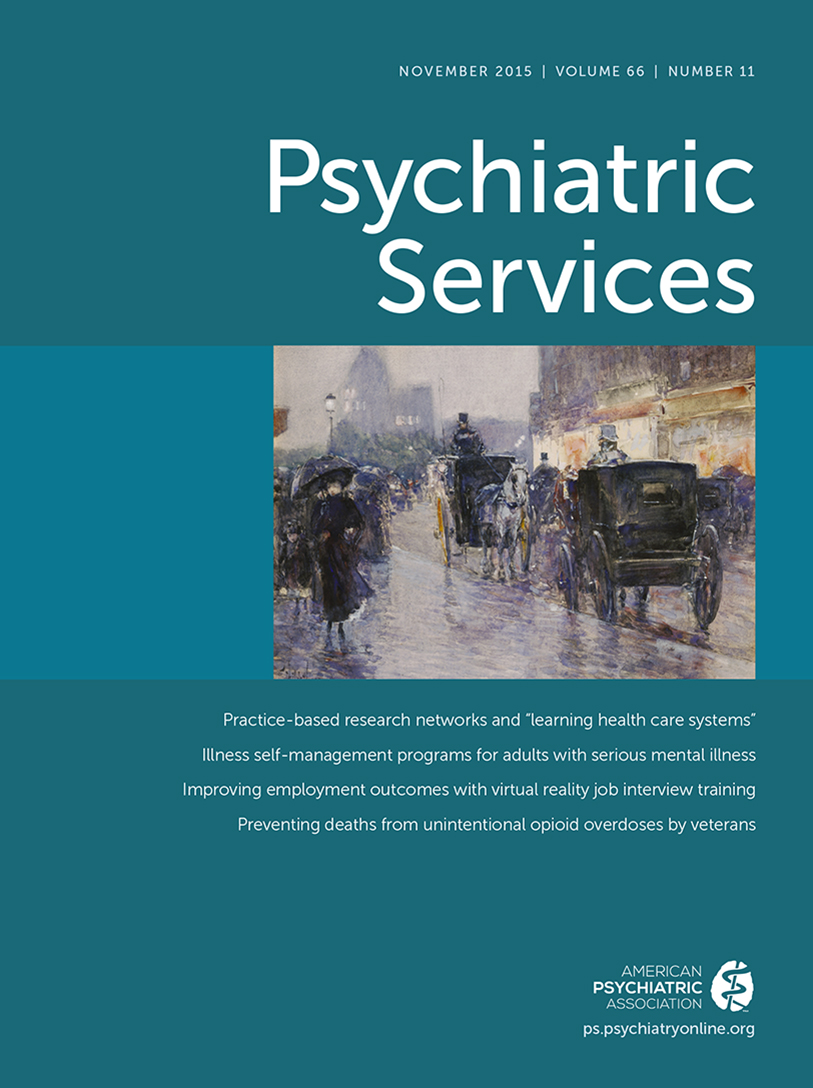Mental Health Laws Influence the Duration of Untreated Psychosis
TO THE EDITOR: In the July issue, Addington and colleagues reported on 404 patients with first-episode psychosis drawn from 34 clinics in 21 states (1). They found that two-thirds had a treatment delay of more than six months, over half had symptoms of psychosis for more than a year, and the average duration of untreated psychosis (DUP) was nearly four years. The delay in receiving treatment after the onset of psychotic illness is important, not only because of the distress and impairment in social performance experienced by individuals while they have untreated mental illness, but also because the first episode of psychosis, prior to effective treatment, carries a greatly increased probability of adverse events (2) and because a long DUP is associated with a worse prognosis (3).
Although clinical factors, such as the insidious onset of psychosis, and social factors, such as stigma, language barriers, minority status, the availability of appropriate services and the cost of health care, all influence the timing of treatment (4), we have shown that mental health laws also affect DUP. We compared studies conducted in jurisdictions with mental health laws that required that persons with mental illness be deemed dangerous to themselves or others before they could receive involuntary psychiatric treatment (obligatory dangerousness criteria, or ODC) with jurisdictions that allowed involuntary treatment on other grounds (5). We found that the average treatment delay in ODC jurisdictions was about five months longer.
Access to timely treatment for psychotic illness is a global problem that on a national level appears to be proportional to per capita income and the level of development of health services. Our interest in the influence of mental health laws on DUP stemmed from the surprising finding of very long DUP in some high-income countries, including the United States, where nearly all states have ODC-type mental health laws. Amending mental health laws to allow earlier treatment of the first episode of psychosis, before there is any track record of dangerousness or clear indication of harm to self or others, may prevent some tragic events and improve the lives and prognosis of a very disadvantaged group of people.
1 : Duration of untreated psychosis in community treatment settings in the United States. Psychiatric Services 66:753–756, 2015Link, Google Scholar
2 : Overview of violence to self and others during the first episode of psychosis. Journal of Clinical Psychiatry 73:e580–e587, 2012Crossref, Medline, Google Scholar
3 : Duration of untreated psychosis as predictor of long-term outcome in schizophrenia: systematic review and meta-analysis. British Journal of Psychiatry 205:88–94, 2014Crossref, Medline, Google Scholar
4 : Health services determinants of the duration of untreated psychosis among African-American first-episode patients. Psychiatric Services 60:1489–1494, 2009Link, Google Scholar
5 : Mental health laws that require dangerousness for involuntary admission may delay the initial treatment of schizophrenia. Social Psychiatry and Psychiatric Epidemiology 43:251–256, 2008Crossref, Medline, Google Scholar



